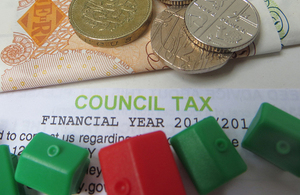Wimbledon tax payments could be reduced to zero

Wimbledon home owners are once again missing out on renting their property
due to the pandemic but tax payments due at the end of July could be reduced or may not need to be paid, say leading tax and advisory firm Blick Rothenberg.
Suzanne Briggs, a partner at the firm said: “Traditionally home owners in Wimbledon have let their properties out to players and fans from all over the world.
“This year there is reduced capacity and all players must stay in the official tournament hotel, rather than having the opportunity to stay in a house nearby. This removes a significant income opportunity for many home owners in the area who in previous years have moved out and then rented out their own house for the fortnight. This will be the second year that many home owners have lost out on income.”
Suzanne said: “ Some of these taxpayers will be due to make a ‘payment on account’ of their 2020/21 tax liability on 31 July 2021. This will be based their tax liabilities for the 2019/20 tax year – which would have included income received during Wimbledon 2019. It is therefore worth considering whether this payment on account can be reduced or even needs to be made at all.”
She added: Usually payments on account are made by taxpayers where less than 80% of their income is taxed at source – so the self-employed or where untaxed income is received, such as rental income. These are based on half of the previous year’s tax liability and are paid on 31 January and 31 July each year.”
Suzanne said: “ So if we take Andy as an example . He rented his house out for the Wimbledon fortnight in June 2019. His tax liability for 2019/20 was £5,000. This was due for payment by 31 January 2021 and at the same time, he needed to make a payment on account of 2020/21 of £2,500. He is due to make a second payment on account on 31 July 2021 of £2,500.
“ Andy did not rent his house out last year as Wimbledon was cancelled so his income for 2020/21 will reduce as a result. Like many people, Andy just paid the tax bill in January. However, rather than making the payment on account in July, assuming he had no other untaxed income in the 2020/21 tax year, he can make an election to reduce the payments on account. This will generate a refund of the first payment on account paid in January and means that he does not have anything to pay in July.”
She added: “It is worth remembering that the upcoming payment on account due at the end of July will be based on tax liabilities for 2019/20 – where for most of the tax year people’s income were largely unaffected by the pandemic. Taxpayers should keep an eye on their payment on account liabilities, particularly where their income has dropped.
“It is very easy to elect to reduce your payments on account on-line, and remember that you do not need to increase your payments on account if your income has increased year on year. When reducing your payments on account it is important to note that if they are reduced too far, then interest is charged at the rate of 2.6% on the shortfall, so any reductions do need to be made with care.”




